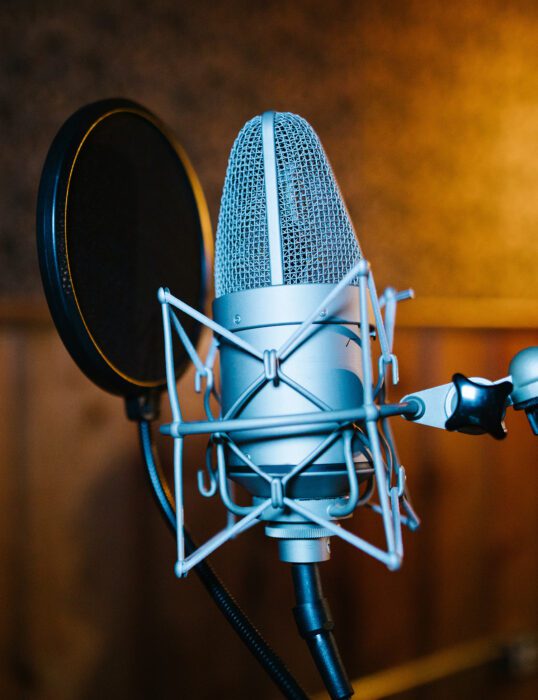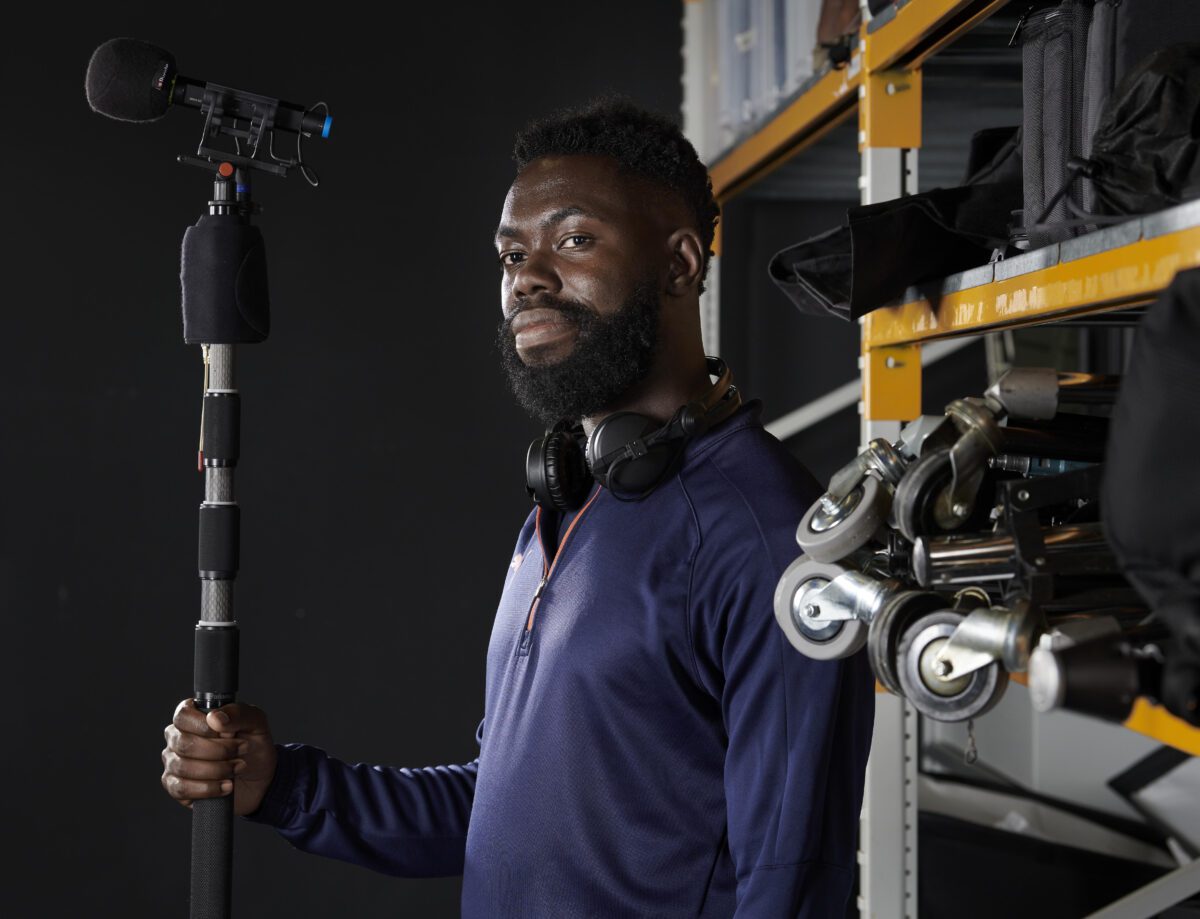In this role you use lots of technical equipment to capture sounds clearly, including a boom (a microphone on a pole that can get close to the sound source) and microphone transmitters. Very large rigs of kit can be used to ensure the acoustics and sounds are just right, and to enable directors and sound teams to hear what actors are saying as films and programmes are being made.
If you listen to a film or tv programme instead of watching it, you’ll notice how sounds communicate important elements of the story. Film and programme makers design these sounds to produce the right atmosphere, just like sets are designed to create the right environments.




